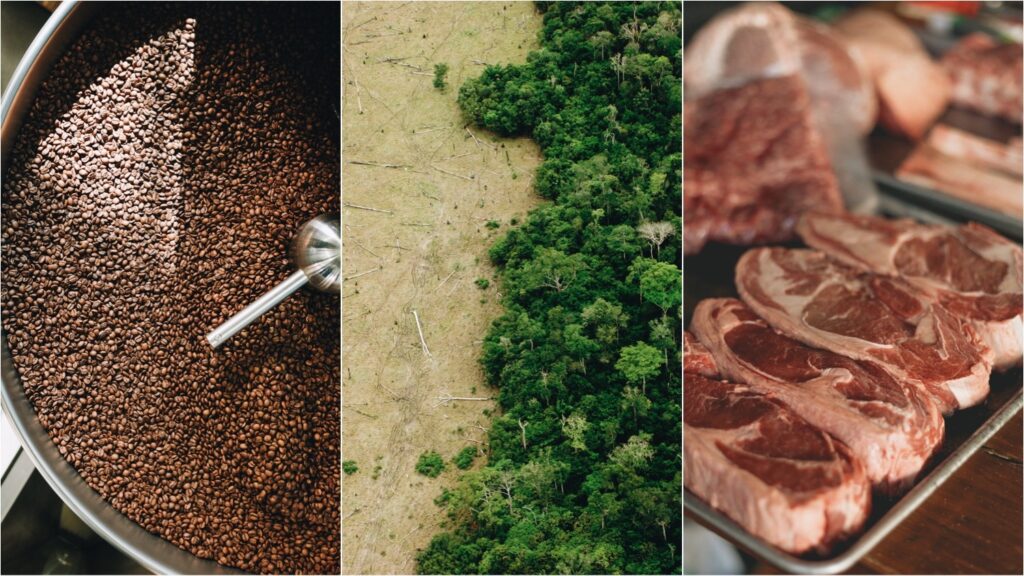The EU could ban the import of several key commodities if linked to deforestation.
On Wednesday, the European Commission introduced draft legislation in an attempt to curb both legal and illegal deforestation overseas. It specifically lists beef, palm oil, coffee, cocoa, wood, and soy, all of which have repeatedly been linked to deforestation, and therefore biodiversity collapse, climate change, and, often, human rights violations.
The law would force companies to definitively prove that their products do not have links to deforestation, clamping down on companies such as beef producer JBS in particular. (A lack of supply chain transparency is both a source of criticism and a frequent excuse for continuing human rights issues within the meat industry.) Those that cannot provide evidence will be fined.
“The deforestation regulations we are putting on the table are the most ambitious legislative attempts to tackle these issues worldwide ever,” says EU environment commissioner Virginijus Sinkevičius, as reported by Reuters. He has also said that the law represents the EU’s willingness to “walk the talk,” after COP26’s landmark deforestation pledge earlier this month.
Since 1990, the world has lost upwards of 420 million hectares of forest, primarily throughout Africa and South America. The EU is one of the world’s biggest contributors and is responsible for up to 10 percent of all deforestation via international trade. The six listed items are responsible for approximately 19 percent of EU commodity imports.
Does the EU’s deforestation law go far enough?
While welcomed by many as a landmark moment for the fight against deforestation, the proposed legislation has also received significant criticism for leaving out other critically vulnerable (and valuable) ecosystems such as savannahs and peatland.
Furthermore, it currently excludes other extremely harmful commodities, such as rubber, which are also directly linked to devastating environmental destruction and human rights violations.
However, MEPs plan to regularly review and update the new legislation to accommodate other products and materials linked to deforestation, and some have indicated that the draft may be adjusted to include rubber before it is implemented.
“The EU is sending a clear message to major supermarkets and retailers: one of the largest economies in the world simply won’t accept agricultural products linked to deforestation,” says Nico Muzi, the European Director of global advocacy NGO Mighty Earth.
The European Commission has said that it hopes the law could be passed by 2023, with an additional grace period of one year for large companies and two years for small ones.


